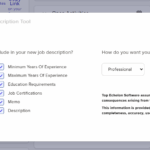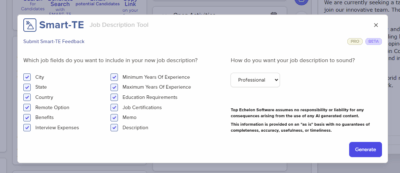Employee feedback is an essential component of building a successful and productive team. Feedback can help employees feel valued, heard, and supported in their roles. It can also provide insights into areas for improvement and opportunities for growth.
In this blog post, we’ll discuss the benefits of employee feedback and why listening to your team matters. However, before we do all of that, let’s definite employee feedback and explore what it means.
What is Employee Feedback?
So . . . what, exactly, is employee feedback?
Employee feedback refers to the process of providing constructive criticism, praise, and suggestions to employees regarding their performance, behavior, and contributions in the workplace. It is a crucial aspect of employee development and growth, as it helps employees understand what they are doing well and where they can improve.
Employee feedback can take many forms, including formal performance evaluations, regular check-ins between managers and employees, and anonymous surveys. The key is to provide feedback that is specific, timely, and actionable, so that employees can take concrete steps to improve their performance.
Effective employee feedback should be focused on behavior and outcomes, rather than personal characteristics or traits. It should be delivered in a constructive and supportive manner, with the goal of helping employees improve, rather than making them feel criticized or defensive.
In addition, employee feedback should be a two-way conversation, with both parties listening and responding to each other’s perspectives. This can help build trust and foster a positive relationship between employees and their managers, which can ultimately lead to higher levels of engagement and job satisfaction.
Benefits of Employee Feedback
As you can see, employee feedback is an essential aspect of employee development and growth, as it helps employees understand what they are doing well and where they can improve. Effective employee feedback should be specific, timely, and actionable, focused on behavior and outcomes, delivered in a constructive and supportive manner, and a two-way conversation between employees and managers.
But what about benefits? We’re so glad you asked! That’s because have some of the most important benefits of soliciting and responding to employee feedback within an organization.
Improved Communication
Employee feedback plays a crucial role in improving communication within an organization. By providing feedback to employees, managers can ensure that they are communicating effectively, while also creating a culture of open communication and collaboration.
First, employee feedback can help managers understand how employees are interpreting their messages. For example, if a manager is giving feedback to an employee and notices that the employee is not responding positively, this may indicate that the message is not being communicated effectively. By receiving feedback from the employee, the manager can adjust their communication style to ensure that the message is being understood.
Second, employee feedback can help to identify communication barriers within an organization. For example, if employees consistently report that they are not receiving enough information about a project or task, this may indicate that there is a breakdown in communication between different departments or teams. By addressing these barriers, managers can ensure that communication is flowing smoothly and effectively throughout the organization.
Third employee feedback can help to create a culture of open communication and collaboration. When employees feel that their feedback is valued and acted upon, they are more likely to communicate openly and honestly with their managers and colleagues. This can lead to increased collaboration, improved problem-solving, and ultimately, better business outcomes.
Employee feedback is essential for improving communication within an organization. By providing regular feedback, managers can ensure that their messages are being understood, identify communication barriers, and create a culture of open communication and collaboration.
Increased Engagement
Employee feedback is a critical tool for increasing employee engagement within an organization. When employees receive regular feedback and feel that their contributions are valued and appreciated, they are more likely to feel engaged, motivated, and committed to their work.
First, employee feedback helps to create a sense of purpose and meaning for employees. When employees receive feedback that recognizes their achievements and contributions, they are more likely to feel that their work has meaning and purpose beyond just completing tasks. This sense of purpose can lead to increased engagement and motivation.
Second, employee feedback provides employees with a sense of autonomy and control over their work. When employees receive feedback that helps them improve their performance, they are more likely to feel that they have control over their work and are empowered to make a difference. This can lead to increased engagement and job satisfaction.
Third, employee feedback helps to build trust and rapport between employees and their managers. When employees receive regular feedback and feel that their managers are invested in their development, they are more likely to trust their managers and feel connected to the organization. This can lead to increased engagement and loyalty.
Employee feedback is a critical tool for increasing employee engagement within an organization. By providing regular feedback, recognizing employee achievements, and fostering a sense of purpose, autonomy, and trust, organizations can create an environment that supports employee engagement, motivation, and commitment to their work.
Enhanced Job Satisfaction
Employee feedback is a crucial aspect of any organization that aims to promote job satisfaction among its employees. It provides a platform for employees to express their views, opinions, and concerns about their work environment, colleagues, and supervisors. When employees receive constructive feedback, it makes them feel valued, recognized, and supported. This, in turn, can significantly enhance their job satisfaction.
One of the main ways in which feedback increases job satisfaction is by providing employees with a sense of purpose and direction. When employees receive feedback about their work, they are better able to understand how their contributions impact the overall goals of the organization. This helps them to feel more engaged and motivated in their work.
Feedback also helps employees to identify areas where they need to improve, and this can contribute to their personal and professional growth. When employees feel that they are progressing and developing their skills, it can boost their confidence and self-esteem, which in turn increases job satisfaction.
In addition, feedback can help to build stronger relationships between employees and their supervisors. When supervisors provide regular feedback, it shows that they care about their employees’ progress and wellbeing. This can lead to a more positive work environment, which can help to promote job satisfaction.
Overall, employee feedback is an essential tool for promoting job satisfaction in any organization. By providing employees with constructive feedback, organizations can create a more positive and supportive work environment, which can help to boost employee morale, engagement, and productivity.
Better Performance
Employee feedback is a powerful tool that can lead to better performance in an organization. When employees receive feedback on their work, they are better able to understand their strengths and weaknesses and identify areas where they need to improve. This can help to enhance their skills, increase their productivity, and ultimately lead to better performance.
One way in which feedback can lead to better performance is by promoting continuous learning and development. When employees receive feedback on their work, they are more likely to seek out additional training or resources to improve their skills. This can help them to become more proficient in their work, leading to increased efficiency and better performance.
Another way in which feedback can lead to better performance is by providing clear expectations and goals. When employees receive regular feedback, they are better able to understand what is expected of them and what they need to do to achieve their goals. This can help to increase their focus and motivation, leading to better performance.
Feedback can also help to promote a culture of accountability and ownership. When employees receive feedback, it holds them accountable for their actions and encourages them to take ownership of their work. This can lead to increased responsibility and commitment to achieving the organization’s goals, which can result in better performance.
Ultimately, employee feedback is a critical tool that can lead to better performance in an organization. By providing regular feedback, organizations can promote continuous learning, set clear expectations and goals, and foster a culture of accountability and ownership. This can help to enhance employees’ skills, motivation, and commitment to achieving the organization’s goals, leading to better performance.
Increased Innovation
Employee feedback can play a vital role in promoting innovation within an organization. By creating a culture of open communication and encouraging employees to share their ideas and suggestions, organizations can tap into the creativity and expertise of their employees to drive innovation.
One way in which feedback can lead to increased innovation is by providing employees with a sense of ownership and empowerment. When employees feel that their opinions and ideas are valued and respected, they are more likely to take initiative and think creatively. This can lead to the development of new products, services, or processes that can help the organization to stay competitive and adapt to changing market conditions.
Feedback can also help to identify areas where the organization can improve or innovate. When employees receive feedback about their work, they are better able to understand the challenges and opportunities facing the organization. This can help to generate new ideas and solutions to address these challenges, leading to increased innovation.
In addition, feedback can help to foster a culture of collaboration and teamwork. When employees receive feedback, it encourages them to work together and share their knowledge and expertise. This can lead to the development of new ideas and solutions that may not have been possible without the input of multiple team members.
Employee feedback can be a powerful driver of innovation within an organization. By creating a culture of open communication, empowering employees to share their ideas and suggestions, and fostering collaboration and teamwork, organizations can tap into the creativity and expertise of their employees to drive innovation and stay competitive in a rapidly changing business environment.
Improved Employee Morale
Employee feedback is a crucial factor in improving employee morale. When employees receive regular feedback on their performance, it makes them feel valued, appreciated, and recognized for their contributions. This, in turn, can lead to increased job satisfaction and a more positive attitude towards their work.
One of the main ways in which feedback improves employee morale is by providing employees with a sense of direction and purpose. When employees receive feedback, it helps them to understand how their work contributes to the goals and objectives of the organization. This can help to increase their motivation and commitment to their work, leading to improved morale.
Feedback can also help to build trust and strengthen relationships between employees and their supervisors. When supervisors provide regular feedback, it shows that they care about their employees’ progress and wellbeing. This can help to create a more positive work environment, which can improve employee morale.
In addition, feedback can help to improve employee skills and confidence. When employees receive feedback on their work, it helps them to identify areas where they need to improve and develop their skills. This can lead to increased confidence in their abilities, which can further improve employee morale.
Employee feedback is a powerful tool that can improve employee morale in an organization. By providing regular feedback, organizations can promote a sense of direction and purpose, build trust and relationships, and improve employee skills and confidence. All of these factors can contribute to a more positive work environment and increased employee morale.
Better Decision Making
Employee feedback is a valuable tool that can help organizations make better decisions. When employees are given a voice and are encouraged to share their opinions, insights, and experiences, it can lead to better decision making in a number of ways.
One way in which employee feedback can lead to better decision making is by providing a broader perspective. Employees who work in different roles and departments may have unique insights and experiences that can help leaders make more informed decisions. By soliciting feedback from a diverse group of employees, organizations can gain a more complete understanding of the issues at hand and make better decisions as a result.
Employee feedback can also help to identify potential challenges or risks that may not be apparent to leaders. When employees are encouraged to share their concerns or raise red flags, it can help leaders to anticipate and mitigate potential issues before they become significant problems.
In addition, feedback can help to build trust and transparency within the organization. When leaders demonstrate that they value employee feedback and are willing to act on it, it can create a culture of trust and collaboration. This, in turn, can lead to better decision making as employees feel more comfortable sharing their opinions and ideas.
Ultimately, employee feedback can play a critical role in improving decision making within an organization. By providing a broader perspective, identifying potential challenges, and building trust and transparency, employee feedback can help leaders make more informed and effective decisions that benefit the organization as a whole.
Improved Customer Satisfaction
Employee feedback can have a significant impact on customer satisfaction. When employees receive feedback on their performance, it can help them to improve their skills and provide better service to customers. This, in turn, can lead to increased customer satisfaction and loyalty.
One way in which employee feedback can improve customer satisfaction is by identifying areas for improvement. When employees receive feedback from customers, they can use this information to identify areas where they need to improve their skills or service. For example, if customers consistently provide feedback that employees are not friendly enough, employees can work on improving their communication and customer service skills to provide a better experience.
Feedback can help to improve employee engagement and motivation. When employees receive feedback on their performance, it shows that their work is valued and that they are making a positive impact on the organization. This can help to increase their motivation and commitment to their work, leading to improved customer service and higher levels of customer satisfaction.
In addition, feedback can help to build a culture of continuous improvement. When employees are encouraged to seek out feedback and use it to improve their skills and service, it creates a culture of continuous learning and development. This can lead to a more engaged and motivated workforce, which can improve customer satisfaction and loyalty.
As you can see, employee feedback can be a powerful tool for improving customer satisfaction. By identifying areas for improvement, improving employee engagement and motivation, and building a culture of continuous improvement, employee feedback can help organizations provide better service to customers and ultimately increase customer satisfaction and loyalty.
Competitive Advantage
Employee feedback can be a valuable tool for gaining a competitive advantage in today’s business landscape. By using employee feedback to drive improvements in areas such as customer service, product development, and operational efficiency, organizations can differentiate themselves from competitors and position themselves for long-term success.
One way in which employee feedback can give organizations a competitive advantage is by improving customer service. When employees receive feedback on their performance, it can help them to identify areas where they need to improve their customer service skills. This can lead to better customer experiences, higher levels of customer satisfaction, and increased customer loyalty, all of which can give organizations a competitive edge in their market.
Feedback can help to drive innovation and product development. When employees are encouraged to share their ideas and insights, it can lead to new products and services that meet the needs of customers in unique and innovative ways. This can help organizations to stand out in their market and gain a competitive advantage over competitors.
Feedback can also help to improve operational efficiency and reduce costs. When employees provide feedback on areas such as workflow, processes, and systems, it can help organizations to identify inefficiencies and streamline their operations. This, in turn, can lead to cost savings, increased productivity, and a competitive advantage in the market.
Employee feedback can be a powerful tool for gaining a competitive advantage in today’s business landscape. By improving customer service, driving innovation and product development, and improving operational efficiency, organizations can differentiate themselves from competitors and position themselves for long-term success.
Strategies to Improve Employee Feedback
Effective employee feedback is essential for improving employee performance, increasing job satisfaction, and ultimately, achieving business success. Feedback can provide valuable insight into employee strengths and weaknesses, help identify areas for improvement, and support employee growth and development. However, many organizations struggle to provide effective feedback to their employees, and the result is often low morale, decreased productivity, and high employee turnover rates.
To address these issues, organizations must develop and implement strategies to improve employee feedback. The following are some key strategies that organizations can use to improve the quality and effectiveness of their employee feedback.
Establish Clear Goals and Expectations: One of the most important strategies for improving employee feedback is to establish clear goals and expectations. This means setting specific, measurable, achievable, relevant, and time-bound (SMART) goals for each employee, as well as defining the expectations for their role, responsibilities, and performance. When employees know what is expected of them, they are better able to understand how their work contributes to the organization’s success, and they can focus on achieving their goals.
Provide Regular Feedback: Another strategy for improving employee feedback is to provide regular feedback. This means giving employees feedback on a regular basis, rather than waiting for annual or semi-annual performance reviews. Regular feedback allows employees to make adjustments to their work in real-time, rather than waiting for feedback that may be too late to make a difference. Regular feedback can also help build trust and rapport between employees and their managers, which can improve communication and collaboration.
Use a Variety of Feedback Methods: To improve employee feedback, organizations should use a variety of feedback methods. This includes both formal and informal feedback methods, such as performance evaluations, coaching sessions, one-on-one meetings, and team meetings. Each method has its own strengths and weaknesses, and using a variety of methods can help ensure that employees receive a well-rounded and comprehensive feedback experience.
Be Specific and Actionable: One of the most important aspects of effective feedback is that it is specific and actionable. This means that feedback should be clear and concise, focusing on specific behaviors or actions that employees can improve upon. Feedback should also be actionable, providing concrete suggestions for how employees can improve their performance. Vague or general feedback is not helpful and can be demotivating for employees.
Focus on Strengths as Well as Weaknesses: While it is important to address areas for improvement, it is also important to focus on employee strengths. By highlighting and reinforcing employee strengths, organizations can help boost morale and job satisfaction, while also improving overall performance. Focusing solely on weaknesses can be demotivating for employees and can lead to a negative work environment.
Encourage Self-Assessment: Another effective strategy for improving employee feedback is to encourage self-assessment. This means encouraging employees to reflect on their own performance, identify areas for improvement, and set their own goals. Self-assessment can help employees take ownership of their own performance and development, while also providing valuable insight into their strengths and weaknesses.
Foster a Culture of Feedback: Finally, to improve employee feedback, organizations must foster a culture of feedback. This means creating an environment where feedback is valued and encouraged, and where employees feel comfortable giving and receiving feedback. This can be achieved by providing training on effective feedback techniques, encouraging open communication, and recognizing and rewarding employees who provide and receive feedback effectively.
Employee Feedback and Talent Management Software
Talent management software is a powerful tool for increasing employee feedback within an organization. By using the features and capabilities of the software, organizations can create a culture of feedback that encourages employees to share their opinions, insights, and experiences.
One way to increase employee feedback using talent management software is to implement a performance management system. This can include regular performance reviews, goal setting, and coaching and development plans. The software can provide a platform for managers and employees to give and receive feedback on performance, identify areas for improvement, and set goals for the future.
Talent management software can also provide a platform for employee surveys and pulse checks. This can help organizations to collect feedback from a large number of employees quickly and easily, and analyze the results to identify trends and areas for improvement. The software can also enable anonymous feedback, which can help to encourage employees to share their honest opinions and feedback.
In addition, talent management software can be used to implement a feedback culture that encourages employees to share their opinions and ideas. This can include features such as discussion forums, suggestion boxes, and social collaboration tools. These tools can provide a platform for employees to share their feedback and ideas, and for other employees to engage with and provide feedback on those ideas.
Taking everything that we’ve addressed into consideration, talent management software can be a powerful tool for increasing employee feedback within an organization. By implementing a performance management system, collecting feedback through surveys and pulse checks, and creating a culture of feedback through collaboration and social tools, organizations can create a culture of feedback that encourages employees to share their opinions, insights, and experiences. This can lead to increased employee engagement, improved performance, and a competitive advantage in the market.








